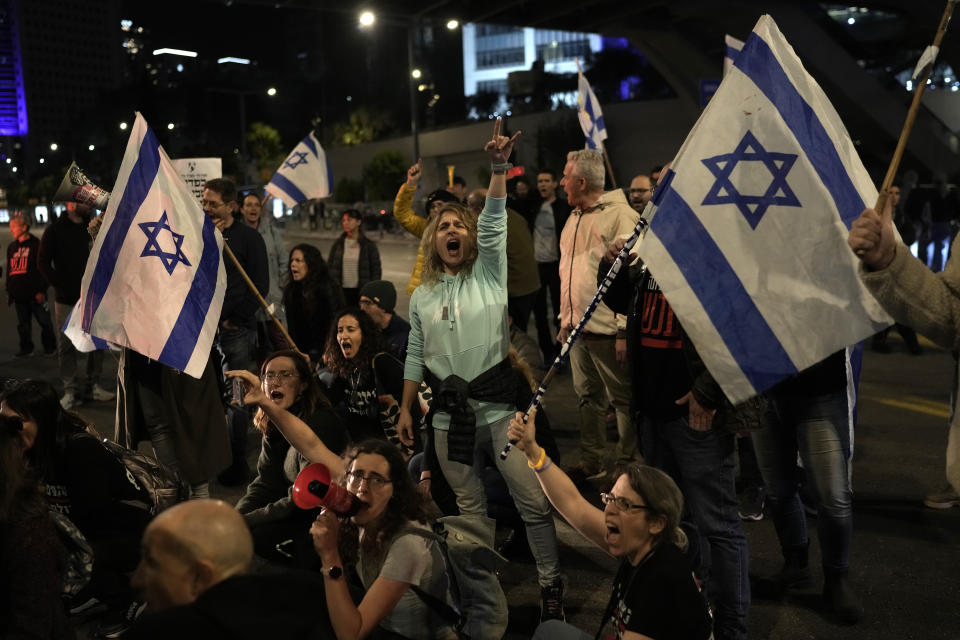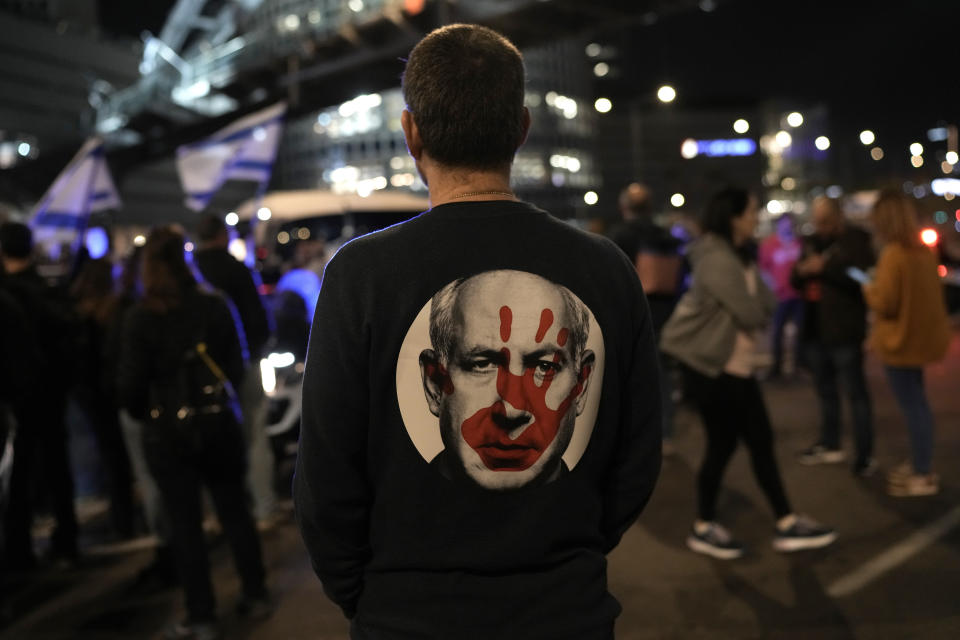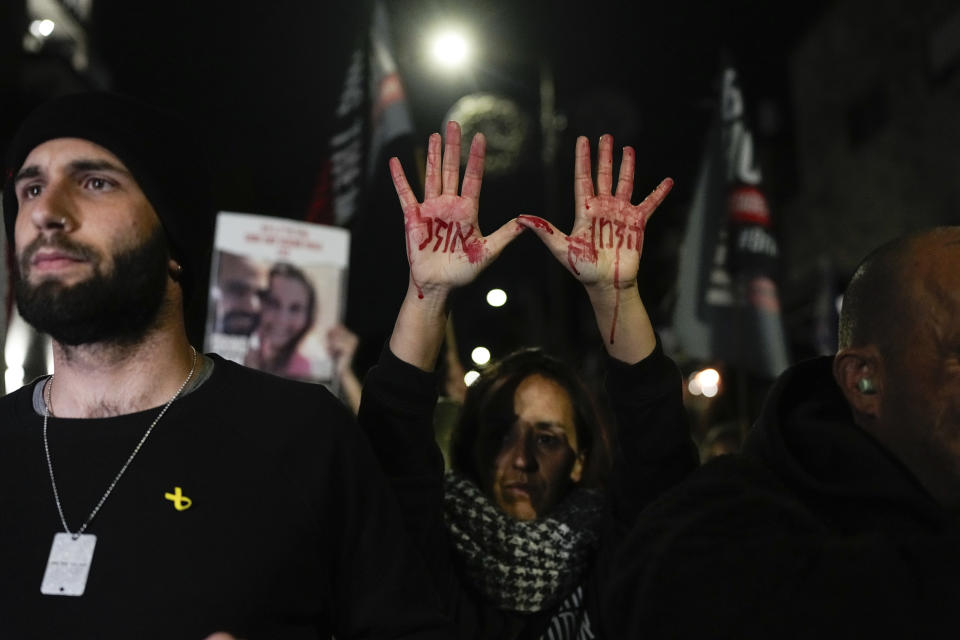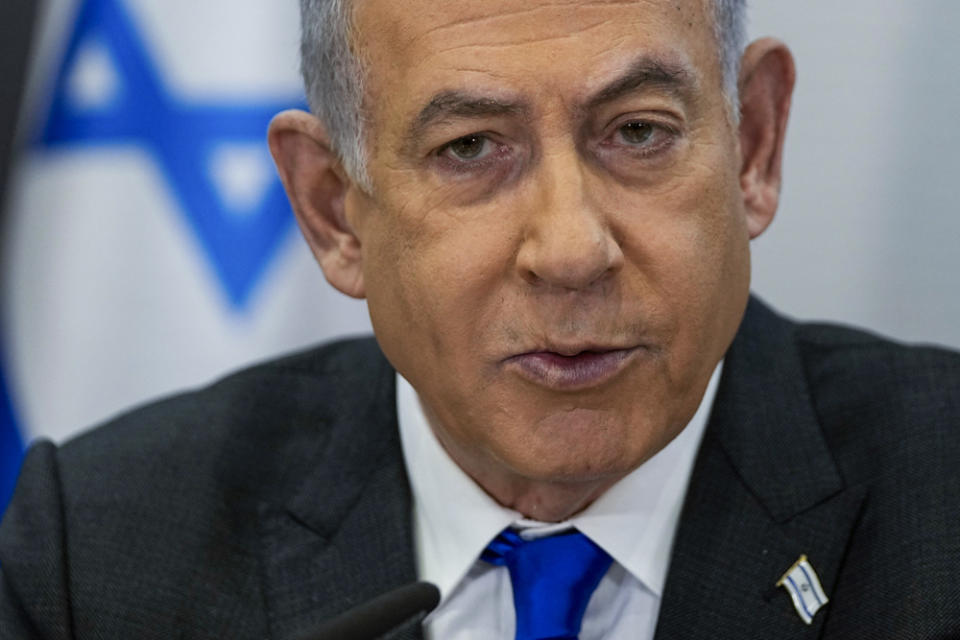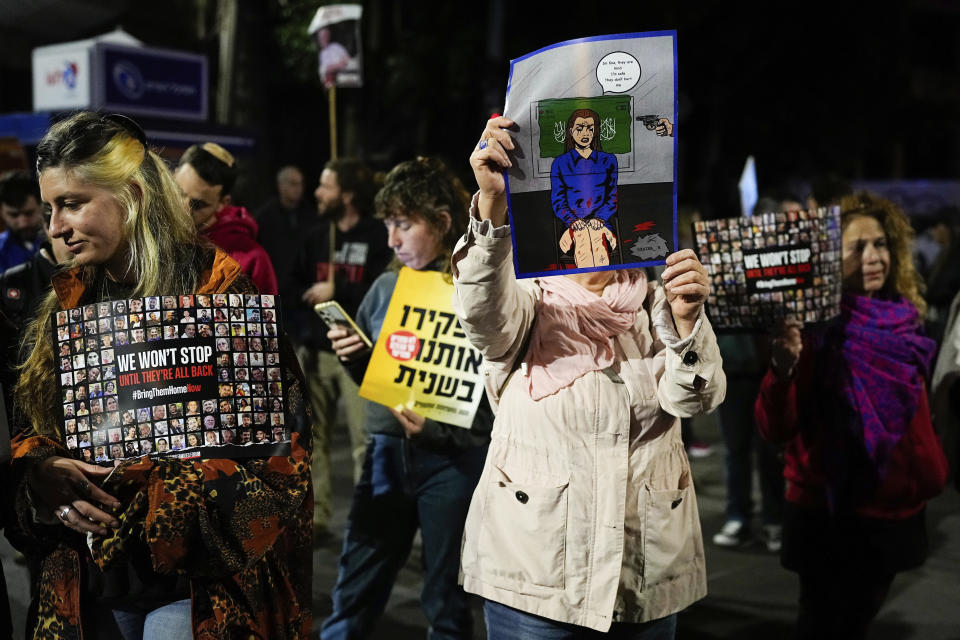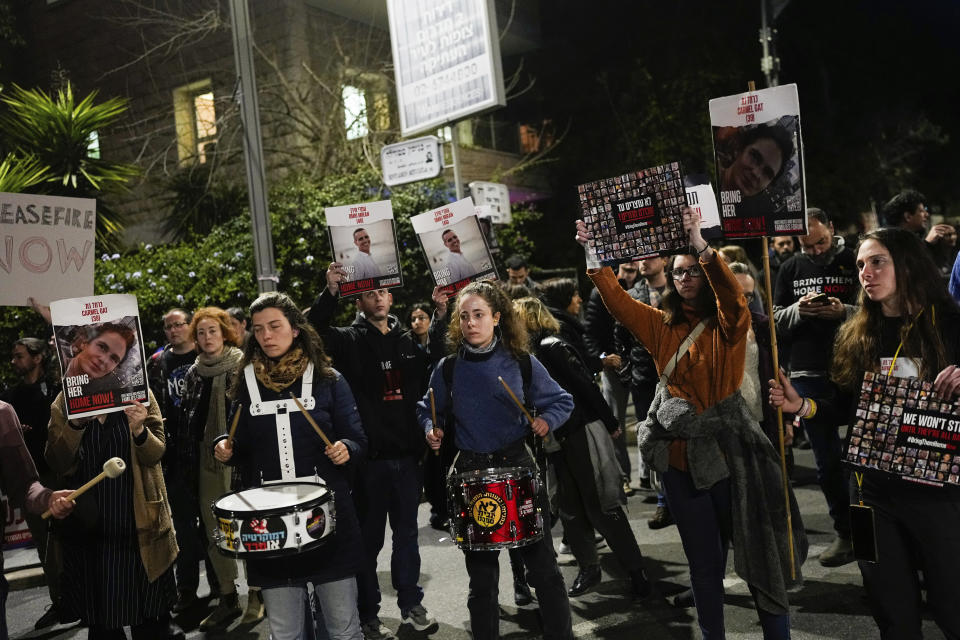Rifts within Israel resurface as war in Gaza drags on. Some want elections now
TEL AVIV, Israel (AP) — Ever since Israel was attacked on Oct. 7, a main Israeli highway has been flanked by billboards preaching national unity and a ubiquitous wartime slogan: “Together we will win.”
But lately those billboards have been replaced with a starkly different message: a call for immediate elections.
The mood of the Israeli public is shifting after more than 100 days of war in Gaza – and the catalyst is a rift over the polarizing leadership of Prime Minister Benjamin Netanyahu.
Israelis stunned by the brutal Hamas attack initially put aside their differences and rallied behind the war effort. Now old divisions that could alter the course of the war are reemerging.
As the death toll among Israeli soldiers keeps rising, and with dozens of hostages still in Gaza and Hamas still standing, more Israelis are vocally pushing back against Netanyahu and his government. The public is also increasingly divided over whether the military can simultaneously achieve Netanyahu’s stated goals of destroying Hamas and freeing all the hostages.
“The Israeli public is rediscovering its political tribalism,” said Nadav Eyal, a commentator for the Yediot Ahronot newspaper. “It inherently limits the decision-making process when you don’t enjoy the public’s trust.”
Netanyahu, the country’s longest-serving leader, still heads a coalition that is clinging to power despite the criticism. But opponents say he lacks a clear vision for how to get Israel out of Gaza. They believe political and personal motivations are clouding his decision-making.
The prime minister's opponents say he is beholden to ultranationalist supporters in Parliament, many of whom have called for the expulsion of Palestinians from Gaza or for Israel to resettle the area. And they point to corruption charges hanging over him as evidence that it is in his self-interest to drag out the war.
Netanyahu says he has the country's best interests in mind and that he will answer tough questions about Oct. 7 — when more than 1,200 were killed and some 250 were taken hostage — after the war ends.
The blistering war has already killed more than 25,000 people in Gaza, most of them women and children, and it has sparked a humanitarian catastrophe because of widespread destruction and displacement, and limited supplies of food, water and medicines. International criticism has prompted a trial at the U.N. world court over claims that Israel is committing genocide against Palestinians in Gaza, a charge it vehemently denies.
Netanyahu, who has so far sidestepped accountability for Israel's military and intelligence failures on Oct. 7, vowed once again on Tuesday to continue fighting “until absolute victory,” even after 24 soldiers were killed the previous day, the deadliest since the war began. He says fierce military pressure is what led to the first hostage release deal in late November and is key to bringing about another.
However, several hostages have died or been killed in captivity, including three mistakenly shot by Israeli troops. The families of hostages in Gaza say time is running out and that another cease-fire deal is needed urgently.
“When the prime minister says ‘absolute victory,’ ’war until 2025,’ he knows that if that’s the case the hostages will die and return in coffins,” said Eyal Ben Reuven, a reserve Israeli general. “A long war in enemy territory is not a good thing.”
While military experts say Israel has made gains in Gaza, these can be harder to grasp for a public still reeling from Hamas’ attack. What the public sees most clearly are mounting soldier casualties, rockets being launched into Israel — although fewer than at the start of the war — and dozens of hostages still held in Gaza.
The internal criticism gained a prominent voice last week.
Gadi Eisenkot, a member of the influential War Cabinet and a former military chief whose son and nephew were killed in the war, told the prominent Israeli news show “Uvda” that only a negotiated deal could free the remaining hostages.
That was a direct challenge to Netanyahu's claim that sustained military force is the best way. Eisenkot also called for elections to be held soon to restore the public's trust.
Before the war, Netanyahu presided over a period of political turmoil that included five elections in less than four years. Each one was a referendum on Netanyahu’s fitness to serve while on trial for corruption.
The nation became even more fractured last year when Netanyahu and his religious-nationalist government launched a judicial overhaul plan that sparked unprecedented protests. Opponents said the plan, if enacted, would be a fatal blow to the country’s democratic fundamentals; scores of military reservists vowed not to serve, leading top defense officials to warn that Israel’s security was at risk.
Netanyahu's critics say Hamas’ attack and Israel’s failure to foresee or promptly contain it was a direct result of the divisions sowed by Netanyahu and his government. Polls show his coalition would not be reelected if elections were held today.
For the growing chorus of voices who oppose the government, patience is wearing thin.
A protest calling for elections last week drew thousands in Tel Aviv, the biggest anti-government rally since the war began.
A group of 170 former commanders and other senior defense officials signed a letter earlier this month calling for elections now. Some of the same commanders were outspoken opponents of Netanyahu’s overhaul, an indication of how the divisions over the war have in many ways settled along the same fault lines as the disagreements over the legal changes.
A recent poll of Jewish voters by the Israel Democracy Institute found that just 10% of respondents from Israel's left wing believe Israel has had large success toward toppling Hamas. The number among the pro-Netanyahu right wing was 35%. The poll interviewed 756 people and had a margin of error of 3.6 percentage points.
Those who oppose elections say they would tear open the old divisions.
“The very discussion of elections will stop the military momentum, present every strategic decision as a political ploy and put the legitimacy of the fighting in question,” Eithan Orkibi, a professor at Ariel University in the occupied West Bank, wrote in the conservative newspaper Israel Hayom.
But public anger, often embodied by the families of those killed or abducted on Oct. 7, is growing.
At a recent protest outside the Knesset, or parliament, one man who said his brother was killed in the Hamas attack was caught on video being dragged away by police as he yelled: “I won’t despair until this whole government gets the hell out of here.” He wore a black T-shirt bearing the word “Elections!” in yellow.
The mother of a soldier who was taken hostage and then died in unclear circumstances while in captivity has waged a public battle against the government. She inscribed on his tombstone that her son was “kidnapped, abandoned and sacrificed in Gaza by the government of failure.”
The families of hostages have also stepped up their campaigns to free their loved ones. They have held protests outside Netanyahu’s private residence, barged in on a parliamentary committee session and blocked a highway in recent days.
“Right now, the most urgent thing — and there is nothing more urgent — is to return the hostages alive,” said Gil Dickmann, whose cousin is being held in Gaza.
Yaacov Godo blames the government and Netanyahu for the death of his son, Tom, who was killed in his home in front of his family during Hamas' attack. He has camped outside of the Knesset since early November in protest.
“It’ll take time, but I believe the day is not far off where we will topple the government," said Godo.

